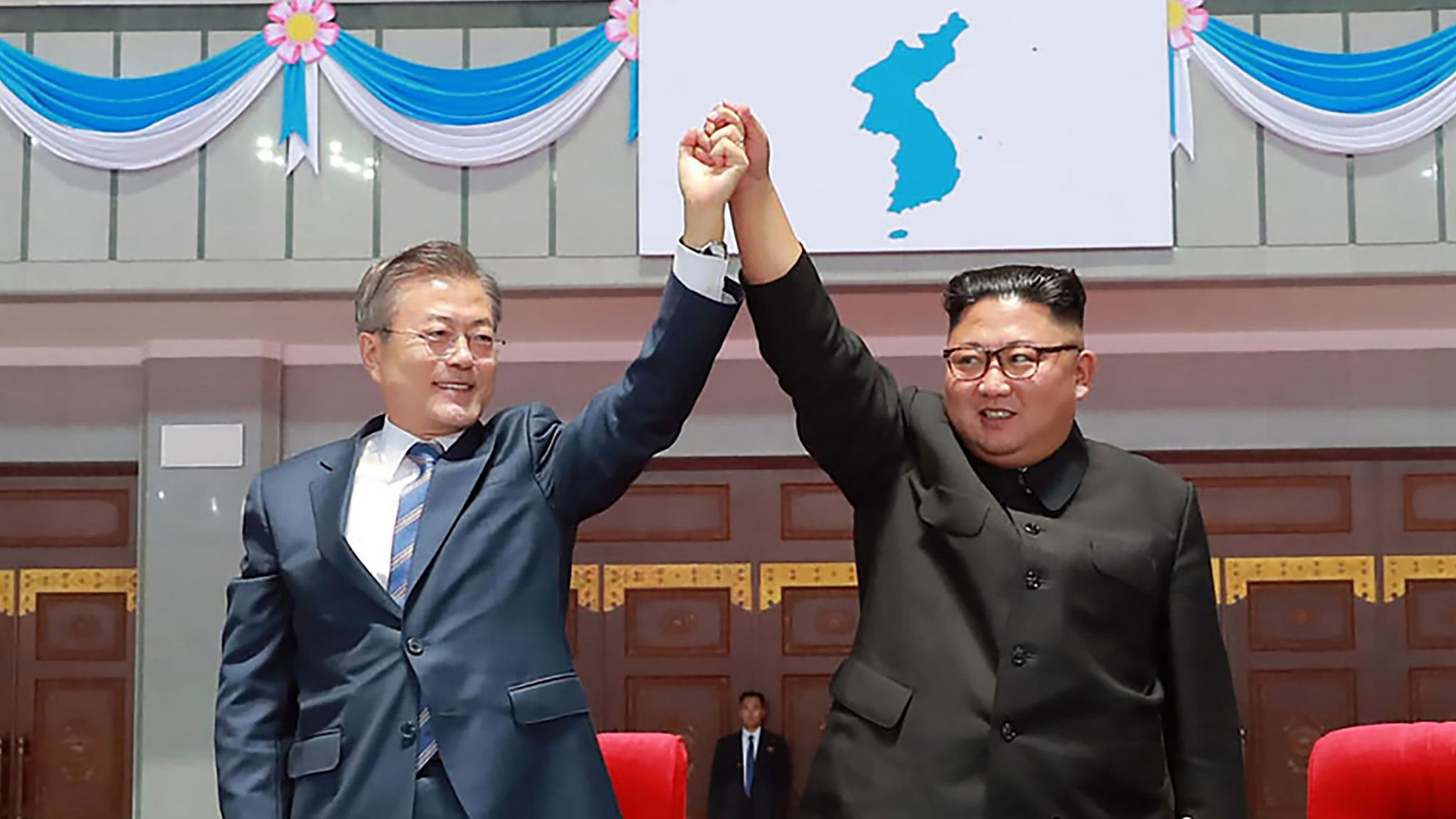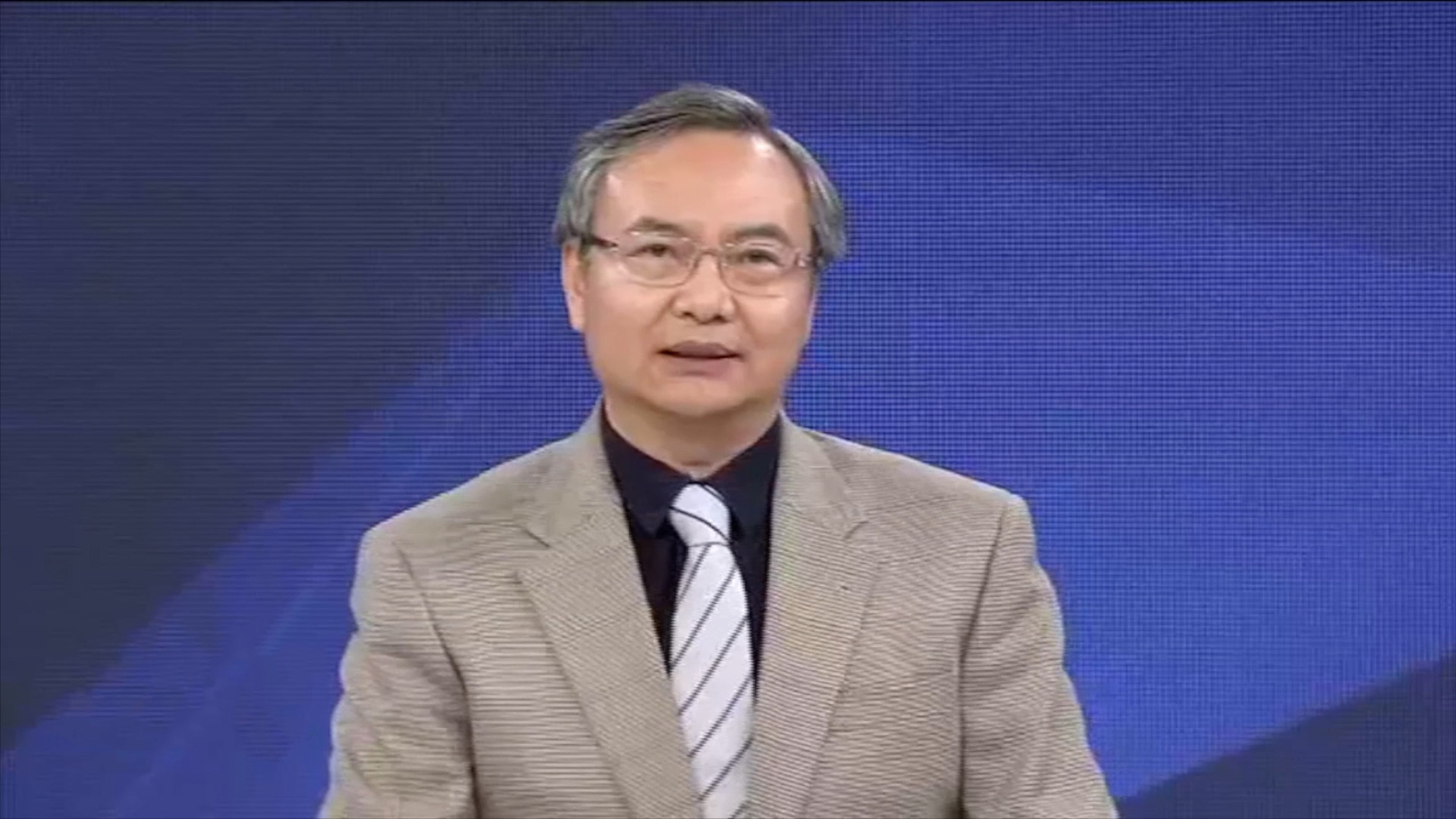
Opinions
17:53, 20-Sep-2018
The Point: Peace treaty an ‘absolute’ to safeguard Korean Peninsula
Updated
16:54, 23-Sep-2018
CGTN’s The Point

A “great progress” was seen in Korean Peninsula diplomacy after the joint declaration highlighting denuclearization was made during the inter-Korean summit in Pyongyang on Wednesday, yet experts say that a legal framework to define the end of the Korean War (1950-53) and provide a lasting peace is still necessary.
00:55

Both need a peace treaty, an “absolute” in a legal framework, to maintain long-term peace on the Peninsula as well as Northeast Asia, Su Hao, a professor of China Foreign Affairs University, said on CGTN's The Point (@thepointwithlx).
Su noted that the Korean War Armistice, which will mark its 65th anniversary this year, is “temporary and illegal way to stop the war.”
Blue House, however, said the agreement signed during the third summit between Kim Jong Un, leader of the Democratic People's Republic of Korea (DPRK), and Moon Jae-in, president of the Republic of Korea (ROK), means a “practical end to the Korean War,” and it outlined a consensus on the following peace process.
DPRK state media in July reminded the ROK of “its part” in ending the Korean War. Pyongyang also has long called for the US to declare an end to the war and pushed to replace the armistice with a peace treaty.
“KOREAN WAR TO END!” US President Donald Trump tweeted after the summit, positioning what Ivan Eland, a senior fellow at The Independent Institute, believes to be Trump's desire for a second denuclearization talk with Kim, as his national security advisers press him to court “more concessions” from the DPRK as a precondition.
In the latest inter-Korean agreement, the DPRK said it would “permanently close” a missile engine testing site and launch facility in Tongchang-ri “in the presence of experts from relevant nations.”
But Eland said it is not a “promise for a complete denuclearization” as the DPRK likely has nuclear weapons in stock. “I'm a bit skeptical that the DPRK will ever give these up, but it's certainly a progress.”
“The alternative is very tense relations… or even a war,” Eland went on. “It is good that two Koreas are making progress.”
Su considered the “progress” as an “action-to-action” format, referring to some “concrete and essential” steps the DPRK has taken towards denuclearization.
“At the moment, we look forward to US' taking reciprocal action in response to DPRK's behavior,” Su argued.
US Secretary of State Mike Pompeo on Wednesday said Washington was ready to begin denuclearization talks with Pyongyang, setting a peace goal for January 2021.
Pompeo also invited his DPRK counterpart to meet in New York next week on the sidelines of the 73rd session of the United Nations General Assembly where Moon is scheduled to brief Trump on the latest Peninsula summit.
(If you want to contribute and have specific expertise, contact us at opinions@cgtn.com.)

SITEMAP
Copyright © 2018 CGTN. Beijing ICP prepared NO.16065310-3
Copyright © 2018 CGTN. Beijing ICP prepared NO.16065310-3